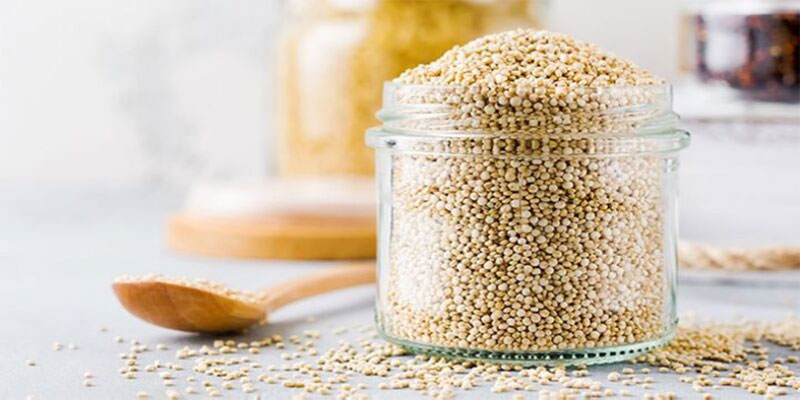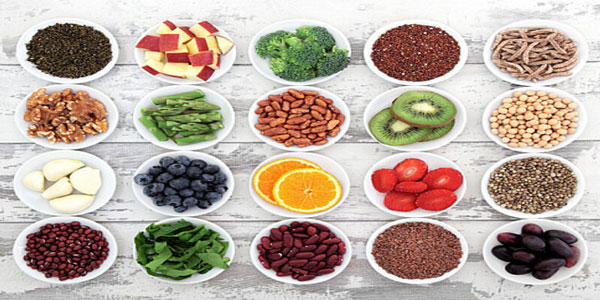Eating a balanced and nutritious diet is essential to maintaining good health and preventing chronic diseases. With so many options available, knowing which foods to choose for optimal nutrition can be challenging. In this article, we will discuss the foods considered to be "super healthy" due to their high nutritional value and numerous health benefits. These foods include leafy greens, berries, nuts and seeds, salmon, avocado, sweet potatoes, whole grains, legumes, yogurt, and eggs.
These foods are nutrient-dense, low in calories, and high in vitamins, minerals, fiber, and antioxidants, which can support overall health and prevent chronic diseases. For example, leafy greens are high in fiber and antioxidants, which can protect the body from free radical damage. At the same time, berries are a good source of fiber and vitamin C, which support immune function. Nuts and seeds are excellent sources of healthy fats, protein, and fiber and can help improve heart health and reduce inflammation. Salmon is rich in omega-3 fatty acids, linked to improved heart health and brain function, while avocados are a good source of healthy monounsaturated fats and fiber.
Incorporating these foods into a balanced diet can help improve heart health, reduce inflammation, and promote healthy gut and brain function. You can take an essential step towards improving your overall health and well-being by making minor changes to your diet and incorporating these super-healthy foods.
10 Nutritious Foods For A Healthy Diet
A balanced and nutritious diet is essential for maintaining good health and preventing chronic diseases. With so many options available, knowing which foods to choose for optimal nutrition can be challenging. This article will highlight 10 of the healthiest foods you can add to your diet to boost your overall health and well-being.
Leafy Greens
Leafy greens like kale, spinach, and Swiss chard contain vitamins, minerals, and antioxidants. These greens are high in fiber, low in calories, and a good source of iron and calcium. They also contain lutein and zeaxanthin, two powerful antioxidants that protect the eyes from age-related damage.
Berries
Berries are delicious and nutritious fruit high in antioxidants, fiber, and vitamin C. Antioxidants help protect the body from free radical damage, which can lead to chronic diseases. Berries are also low in calories and added to yogurt, smoothies, or snacks.
Nuts And Seeds
Nuts and seeds are excellent healthy fats, protein, and fiber sources. They are also rich in vitamins and minerals, including magnesium, potassium, and selenium. Nuts and seeds are a great snack on their own or added to oatmeal, yogurt, or smoothies.
Salmon
Salmon is a fatty fish rich in omega-3 fatty acids, which have been shown to have numerous health benefits. Omega-3 fatty acids have been linked to improved heart health, reduced inflammation, and improved brain function. Salmon is also a good source of protein and vitamins B12 and D.
Avocado
Avocados are a creamy and nutritious fruit high in healthy monounsaturated fats. These healthy fats have been linked to improved heart health, reduced inflammation, and improved brain function. Avocados are also a good source of fiber, potassium, and vitamins C and K.
Sweet Potatoes
Sweet potatoes are a nutrient-dense food high in fiber, vitamins A and C, and potassium. They are also low in calories and make a great addition to meals as a side dish or in soups and stews. Sweet potatoes are also a good source of complex carbohydrates, providing the body with a slow and steady energy source.
Whole Grains

Whole grains, such as brown rice, quinoa, and whole wheat bread, are excellent sources of fiber, vitamins, and minerals. They are also a good source of complex carbohydrates, providing the body with a slow and steady energy source. Whole grains have been linked to improved heart health, reduced inflammation, and improved digestive health.
Legumes
Legumes, such as beans, lentils, and chickpeas, are nutritious and versatile food high in fiber, protein, and vitamins. Legumes are also a good source of iron, calcium, and potassium. They are a great addition to salads, soups, and stews and can also be used as a base for veggie burgers and dips.
Yogurt
Yogurt is a fermented dairy product rich in probiotics, which are beneficial bacteria that support gut health. Yogurt is also a good source of calcium, protein, and vitamins B12 and D. Look for plain, unsweetened yogurt to avoid added sugars, and add fruit or nuts for added flavor and nutrition.
Eggs

Eggs are a versatile and nutritious food that is packed with essential nutrients. One large egg contains about 6 grams of protein, 5 grams of healthy fats, and a variety of vitamins and minerals, including vitamins A, D, B12, and choline. Choline is a nutrient that is important for brain function and liver health.
Conclusion
In conclusion, incorporating "super healthy foods" into your diet can profoundly impact your health and well-being. These foods are high in essential nutrients, low in calories, and provide various health benefits, including improved heart health, reduced inflammation, and support for healthy gut and brain function. By making these foods a regular part of your diet, you can take an essential step towards a more nutritious, more balanced diet. However, it's also important to remember that a balanced diet includes a variety of foods, and no single food can provide all the nutrients your body needs. So, be sure to include a variety of healthy foods in your diet to get the most benefit.




